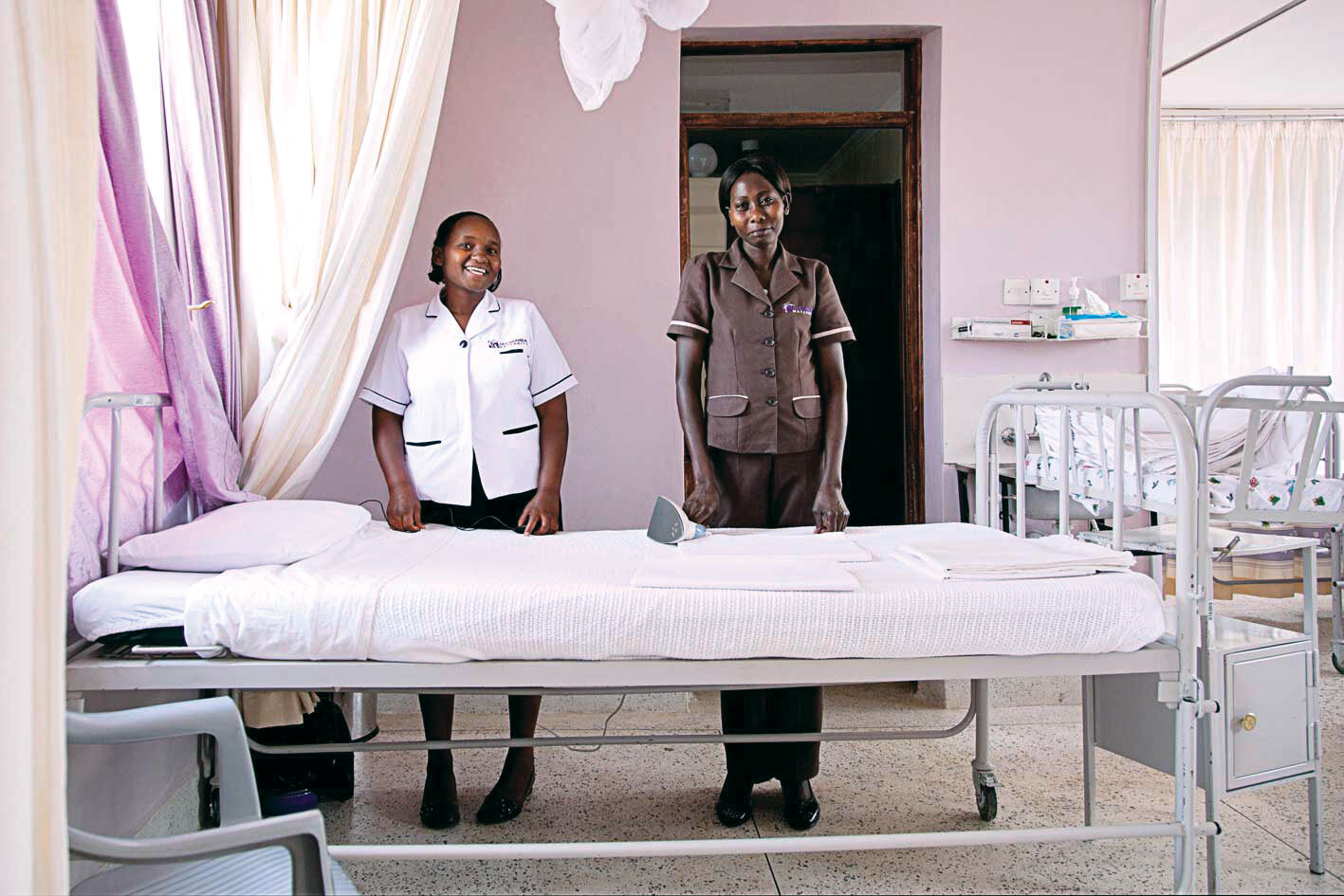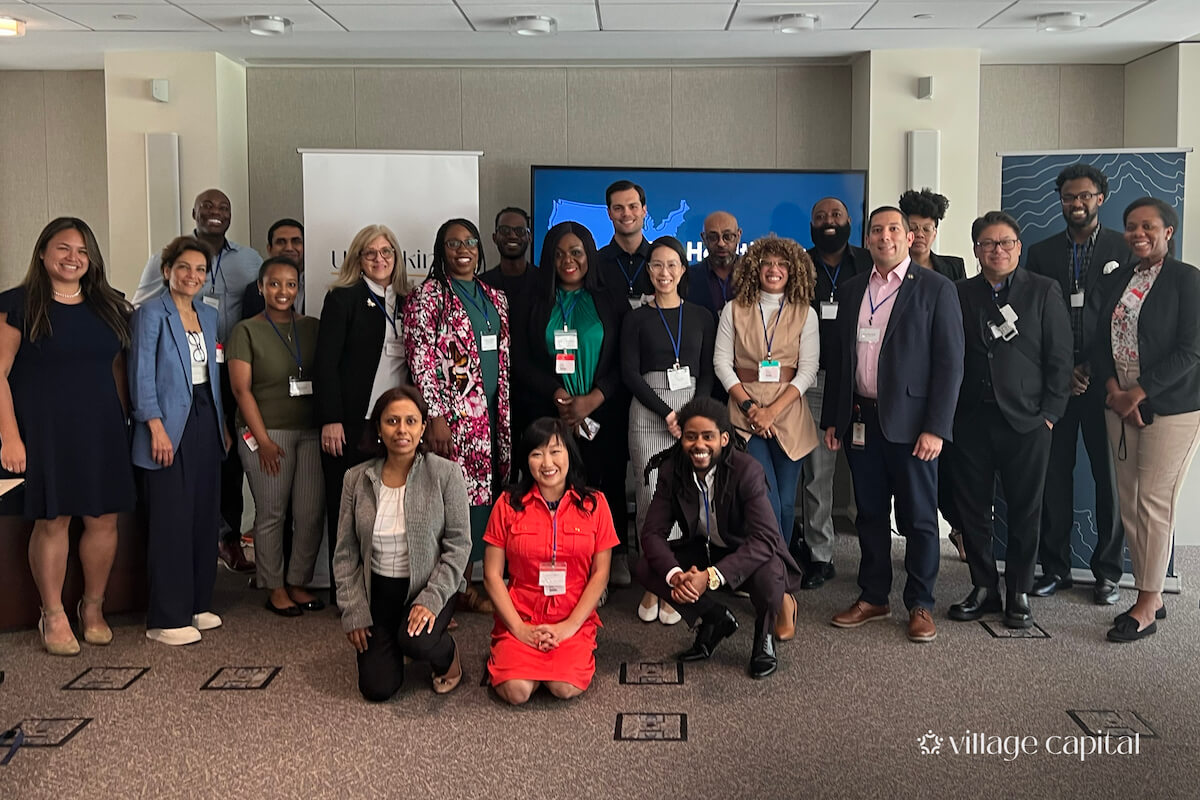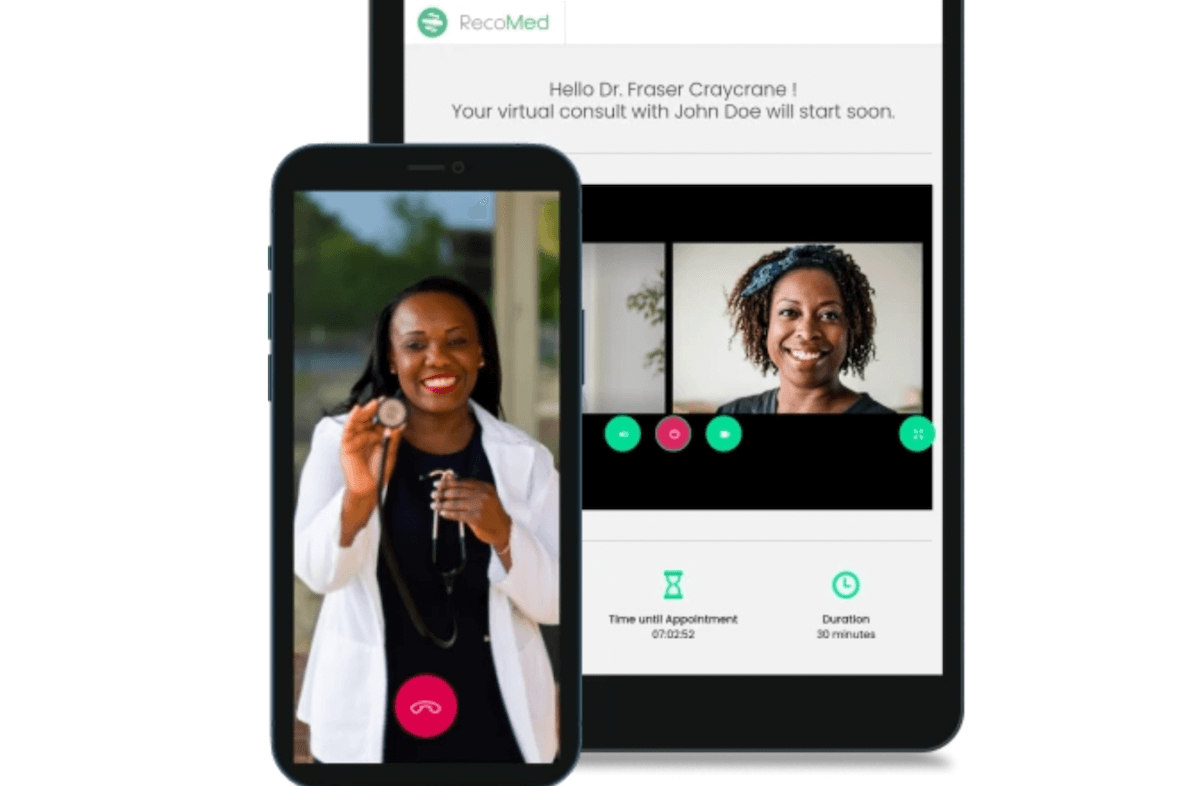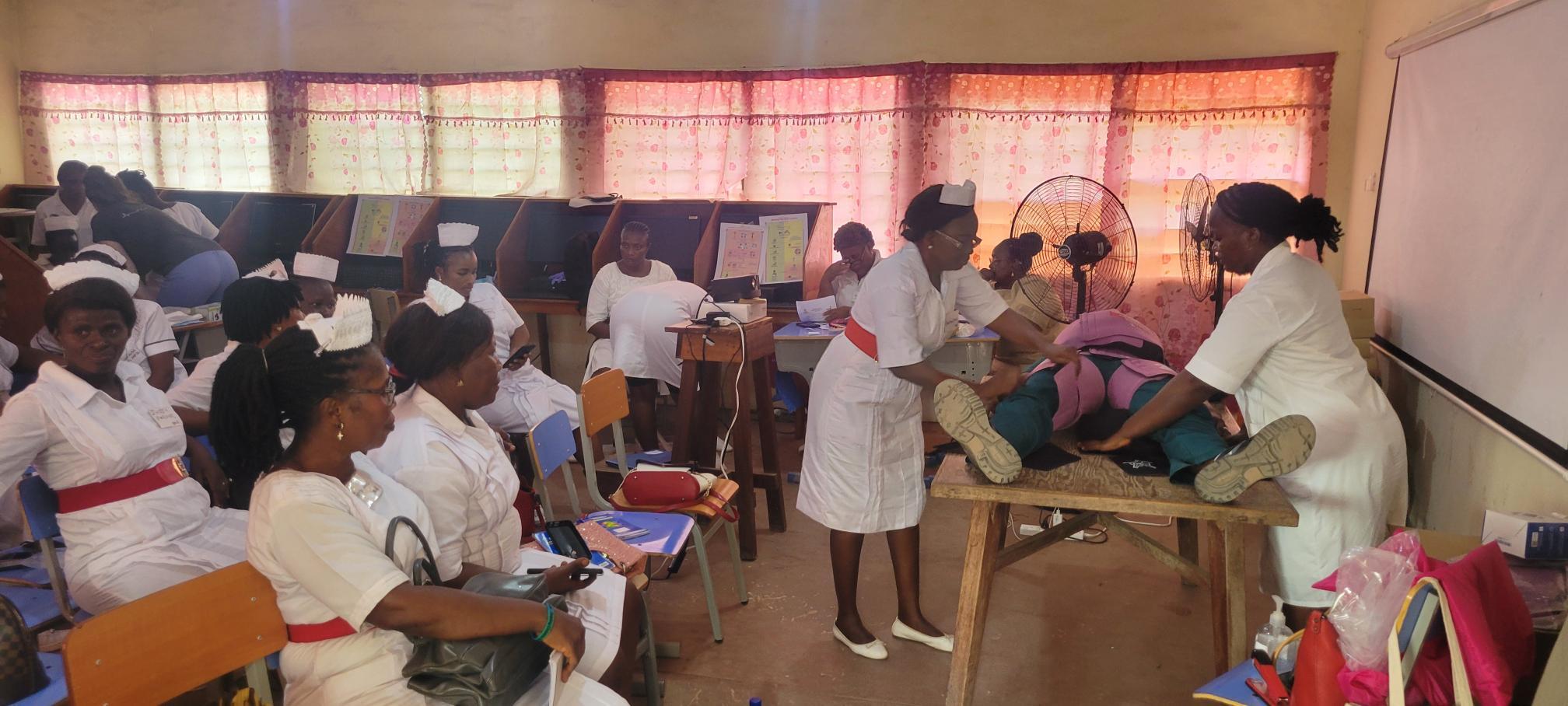Editor’s note: This article is sponsored by Johnson & Johnson Impact Ventures, which supports ImpactAlpha’s Investing in Health coverage. In partnership with J&J Impact Ventures, ImpactAlpha is exploring the market potential of impact investments in purpose-driven entrepreneurs working to improve health outcomes for underserved communities around the world.
Around the world, too many women do not have access to safe, respectful maternity care when delivering their babies. Families with money can afford good care, but many populations have to rely on broken or strained public health systems.
These deep inequities persist from East Africa to the United States and can result in poor outcomes for mothers and their babies. At Jacaranda Health, we’ve found a way to support tens of thousands of women through their pregnancies in Kenya through a unique business structure that aligned our leadership and capital needs.
Low cost, high quality
A dozen years ago, I was working for an impact investor in Nairobi who was struggling to find healthcare deals targeting affordable, mass-market health care. The “investable” private sector was aimed at wealthier Kenyans, and health businesses targeting the mass market were fragmented and small.
Inspired in part by my wife, an obstetrician who had seen first-hand the challenges that women face accessing care, I saw an opportunity to take a business approach to innovating in maternity care. There was, simultaneously, a gap in the market and a willingness to pay for good services among working class families. In 2011, our team started Jacaranda Health with the idea that we could build a chain of high quality, respectful maternity hospitals for women in peri-urban Nairobi. Profitably.
We launched Jacaranda Health as a nonprofit with a revenue-generating model, recognizing that it would take some initial philanthropic capital to help fine tune a model with thin margins in a challenging peri-urban market – assuming that we could raise impact investment to scale once we reached that point. But first and above all else, we needed to find a delicate balance between keeping costs low enough to be accessible to the mothers we served, without compromising on our ambitions for world-class quality and friendly clinicians.
I thought it would take a year or two.
Scaling for impact
Five years later, in 2017, Jacaranda Health was running a busy hospital on the outskirts of Nairobi, providing maternal healthcare to thousands of moms (prenatal, deliveries, infant care, and family planning) with a strong local brand and globally-recognized model of care.
We had also gained exciting early traction in partnering with the Kenya government health sector to share the innovative tools and processes we had developed for our own hospital, such as nurse training and digital outreach, at a time when, despite rapid private sector growth in Kenya, 80% of women still delivered their babies in busy government hospitals that struggled to provide quality care. Even though we were well-loved by clients, our hospital was struggling to break even.
Our team was at a crossroads: we were optimistic about the hospital business model, but knew that in order to succeed, we needed to act more like a business and less like a nonprofit. Meanwhile, there was an enticing new opportunity for rapid growth as a technical assistance partner to the government health system.
We saw two paths to choose from, social business maternity venture or government technical partner, and felt that doing both at once could be a recipe for excellence at neither. Each model required very different leadership teams and different flavors of capital.
With the help of some thoughtful impact investors at Tara Health Foundation, we decided to hedge our bets and try both – but not as a single organization. The two approaches were thematically aligned around quality maternity care, but they were night-and-day in execution.
So we spun out the maternity hospital from the nonprofit as a standalone social venture, Jacaranda Maternity, seeded it with a loan, and hired Sawan Shah, a CEO with a strong business background in financial services.
By 2019, our hospital had broken even, and we raised a Series A round from Johnson & Johnson Impact Ventures, Africa-Asia Investment & Consulting and Swedfund. Jacaranda Maternity now has two busy hospitals in peri-urban Nairobi and is opening a third this year. Our team has accompanied tens of thousands of women through their pregnancies. We’re embarking on a Series B for this summer to open another 10 hospitals across Kenya.
What’s next
Those bruising early years of trying, failing, and finally succeeding to make our unit economics work for mass-market, affordable care have given us an advantage as we scale. We can expand into markets in Kenya that the higher-end private providers can’t reach. Our ambition is to become the region’s largest chain of maternity hospitals.
Meanwhile, the nonprofit sister company, Jacaranda Health, has a team of 100 focused on technology innovation, nurse training, data science, and impact evaluation. It has grown its partnerships with the Kenyan government to 20 counties and over 900 government health facilities, and its AI-enabled digital health platform reaches over a million Kenyan moms, funded by a growing portfolio of philanthropic partners and funders.
Looking back, any entrepreneur has a hundred reflections and lessons – some of regret, some of success. There is a path to achieving health impact through both the private sector and public, but each approach is challenging enough, let alone trying to do it all within a hybrid organization.
In my mind, the single most important decision we made as a team was to split Jacaranda into two organizations and align capital and leadership to each model.
Nick Pearson is founder and co-executive director at Jacaranda Health.











